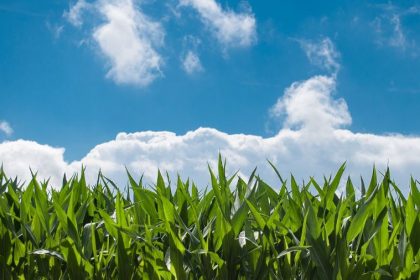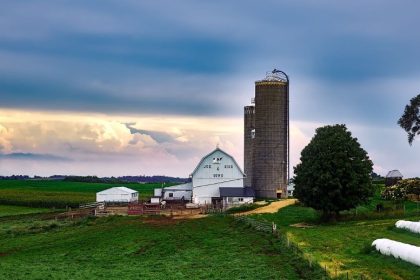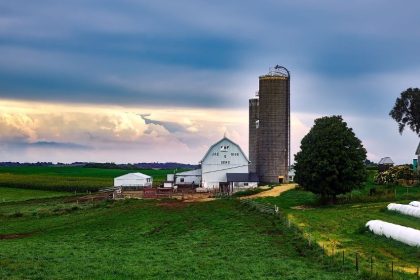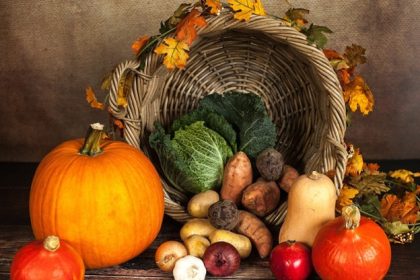Stop Milking It, Dairy Farmers Tell Plant-Based Competitors
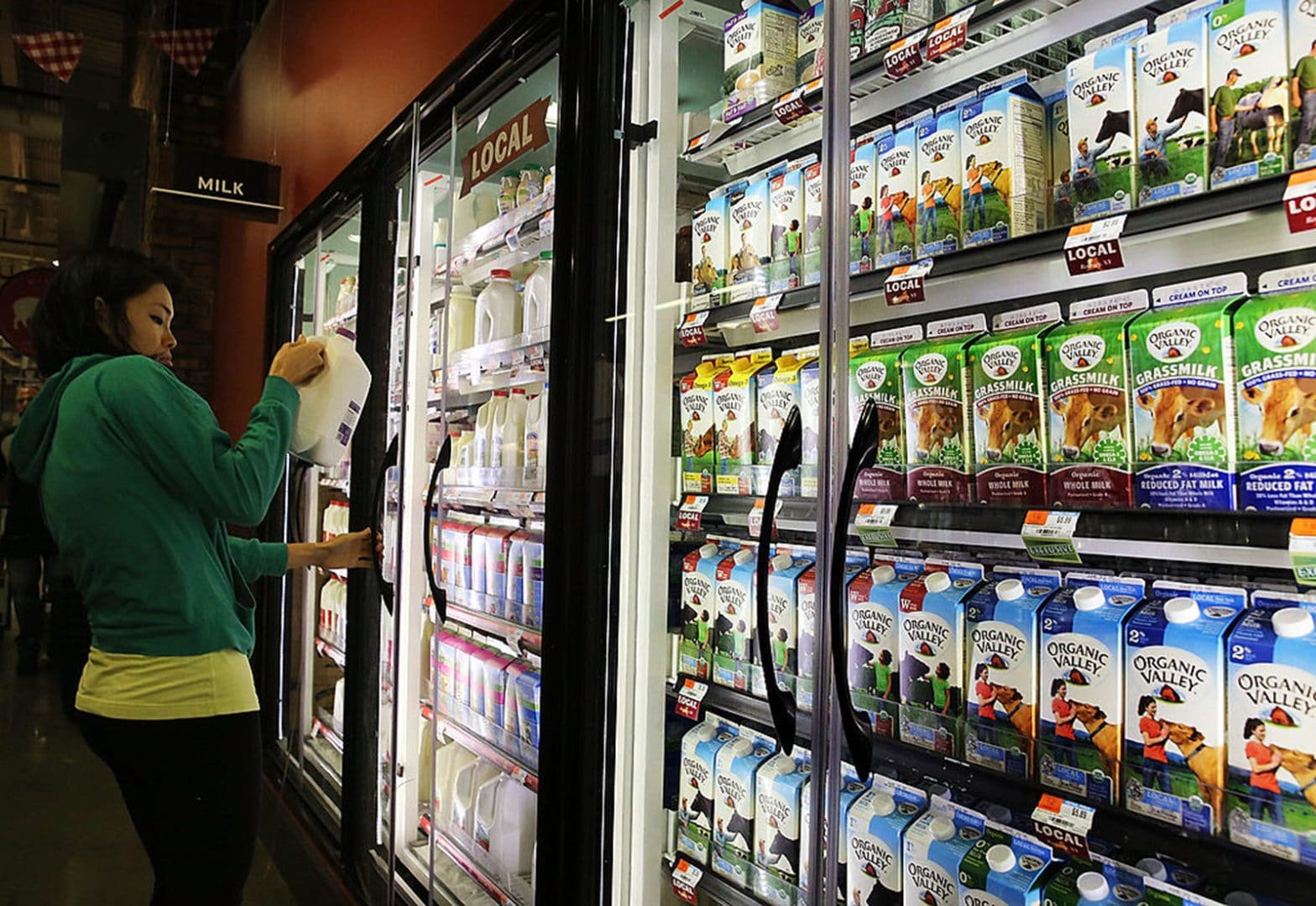
WASHINGTON — What’s milk? For Jason Gallion, the only full-time farmer serving in the Maryland state Senate, the question is a no-brainer.
“It’s always been assumed the definition of milk is that it’s from a mammal,” said Gallion, 43, whose first job at age 15 was milking cows on his uncle’s dairy farm.
But defining “milk” has become more complicated and contentious as almond, oat, soy and other plant-based alternatives compete for customers and dairy farmers struggle.
The dairy industry wants the federal government to restrict use of the “milk” label to fluid “obtained by the complete milking of one or more healthy cows.” Legislation is pending on Capitol Hill, and the U.S. Food and Drug Administration is investigating the issue. In the meantime, dairy advocates are pressing their cause in state legislatures.
North Carolina was the first state, in 2018, to enact a law that could limit — eventually — what can be called milk. To avoid disruption of interstate commerce, the law won’t take effect unless 11 of 14 other states pass similar measures.
“If there’s anybody in the whole wide world who deserves to make a living, it’s dairy farmers,” said North Carolina Agriculture Commissioner Steve Troxler, who took the idea for a state labeling law to lawmakers. “They milk cows two or three times a day, every day. They’re very devoted to what they do.”
There’s no intention to take plant-based beverages off shelves, Troxler said, but “‘milk’ needs to come out of the label. That’s the first step. There also needs to be clear nutritional labeling.”
In Maryland, Gallion, a Republican, was in office only a few months last year when he heard about North Carolina’s law. He had milked 60 Holsteins and Jerseys on his farm from 1999 to 2004 before switching to farming beef cattle and hay. Maryland’s dairy farmers, he decided, needed protection, too.
“I’m for truth in labeling,” Gallion said. “Plant-based companies are making their money off the good name of milk. It’s a fairness thing.”
Gallion’s bill passed 36-10 in the Senate and 118-21 in the House, after the addition of the contingency that it will not take effect unless 11 other states pass similar measures by 2029.
But some lawmakers staunchly oppose the bills.
“Most consumers are intelligent enough to know it’s coming from plants, not a cow,” said Indiana state Rep. Justin Moed, a Democrat who represents an urban district in Indianapolis. He was an outspoken opponent of an Indiana milk and meat labeling bill last year that failed.
“Who is being confused that oat milk is coming from a cow?” Moed said in an interview. “Is peanut butter coming from a cow? Valvoline could be mad ‘olive oil’ is called oil. Who’s to say what oil is? I don’t know where this ends.”
Milk labeling bills made it to several state legislatures this year, including Kentucky, New York, Oklahoma, Virginia and West Virginia. The Wisconsin Assembly passed two milk labeling bills last month, after holding them over from last year. They are pending in the state Senate.
Last year, Louisiana, Nebraska and Pennsylvania passed resolutions urging the federal government to act, according to the National Conference of State Legislatures.
Almost every year since 1975, Americans have drunk less cow milk than the year before, often because they believe plant-based milks are healthier, kinder to animals or more environmentally friendly.
The average U.S. resident consumed 146 pounds of milk in 2018, according to the USDA, down from 247 pounds in 1975.
Lower consumer demand for cow milk and generally lower prices paid to farmers for milk have forced many to leave the dairy business. Nationally, the number of dairy farms fell to 54,599 in 2017 from 64,098 in 2012 — a decline of nearly 15%, according to the USDA.
But Clay Detlefsen, senior vice president for regulatory and environmental affairs for the National Milk Producers Federation, said the goal of the labeling effort is not to aid dairy farmers. “This is about consumers and nutrition,” he said.
U.S. Department of Health and Human Services and Department of Agriculture guidelines call for adults to consume the equivalent of 3 cups of dairy products a day. The government recommends “fat-free and low-fat (1%) dairy, including milk, yogurt, and cheese, or fortified soy beverages (commonly known as ‘soymilk’).”
The guidelines note that “other products sold as ‘milks’ but made from plants” such as almond, rice, coconut and hemp, may “be consumed as a source of calcium.” But “their overall nutritional content is not similar to dairy milk and fortified soy beverages (soymilk).” The guidelines are updated every five years and a review is underway.
A survey conducted by market research firm Ipsos in 2018 for the milk producers group found consumers mistakenly believed dairy milk and plant-based milk alternatives have the same nutritional content. Asked about protein, 77% of respondents thought plant-based milk had the same or more protein than dairy milk.
In fact, the nutritional content of plant-based beverages sourced from nuts, legumes, seeds and grains varies depending on the source and the amount of water and other additives used in preparation. Fat-free and lactose-free milk typically have 9 grams of protein in a cup, compared with 1 gram of protein in a cup of almond milk. Soy milk, however, has almost the same nutritional value as cow milk.
But cow milk typically has more sugar than unsweetened plant-based milks. In addition, some people are allergic to cow milk or find it hard to digest, so they choose plant-based milks. Nutritionists advise consumers to compare nutrition labels for calcium, Vitamin D and other nutrients.
“Everybody realizes you can’t milk an almond, but they’re not aware of the nutritional differences,” said Steven C. Ingham, administrator of Wisconsin’s Division of Food and Recreational Safety.
The Plant Based Foods Association, headquartered in San Francisco, actively fights meat and milk labeling efforts on behalf of producers of alternative foods.
“I’ve never seen an issue take off like this one,” longtime food issues lobbyist Dan Colegrove said of milk and meat labeling efforts. As a consultant to the association, Colegrove testifies at legislative hearings around the country.
He argues labeling regulations for plant-based milks are unnecessary, “a solution in search of a problem,” and violate First Amendment free speech protections for companies to label their foods with “clear, non-misleading terms.”
The association’s voluntary guidelines for labeling recommend that labels clearly identify the main ingredient as part of the word milk and be labeled as “plant-based milk,” he said.
“Our member companies selling milk alternatives already use qualifiers such as ‘non-dairy,’ ‘dairy-free,’ ‘plant-based,’ and-or ‘vegan’ to make their labels clear to consumers,” Colegrove said in written testimony to a Virginia Senate committee in February.
But Vermont dairy farmers believe plant-based milk labels, marketing and even placement in grocery stores are confusing to consumers, said Vermont Agriculture Secretary Anson Tebbetts, who grew up listening to Red Sox games while milking cows on his family dairy farm and had a career in TV broadcasting before state government.
“They don’t need to be chilling products that don’t need to be chilled. It’s wasted energy, if nothing else,” he said. “Labels should be accurate and truthful.”
Former FDA Commissioner Dr. Scott Gottlieb cited the “proliferation of products made from soy, almond or rice calling themselves milk” when the agency announced its guidelines review in 2018. Gottlieb said the alternative products “are not the food that has been standardized under the name ‘milk’ and which has been known to the American public as ‘milk.’”
The FDA solicited public comments until January 2019, “and we are continuing to review the approximately 13,000 comments we received from a wide variety of stakeholders, such as plant-based food industry, dairy industry, public interest groups, and individual consumers,” Nathan Arnold, FDA press officer, said in an email.
“Until we finish reviewing, we don’t have additional comment on the labeling of plant-based food product. In general, we expect all labeling to be truthful and not misleading,” Arnold said. He said he did not know how long the review would take.
Dr. Stephen Hahn has replaced Gottlieb as FDA commissioner. Asked about dairy labeling at his Senate confirmation hearing last November, Hahn said, “I’m in favor of clear, transparent and understandable labeling for the American people.” He has made no other public statements on the topic since then.
———
©2020 Stateline.org
Visit Stateline.org at www.stateline.org
Distributed by Tribune Content Agency, LLC.

















